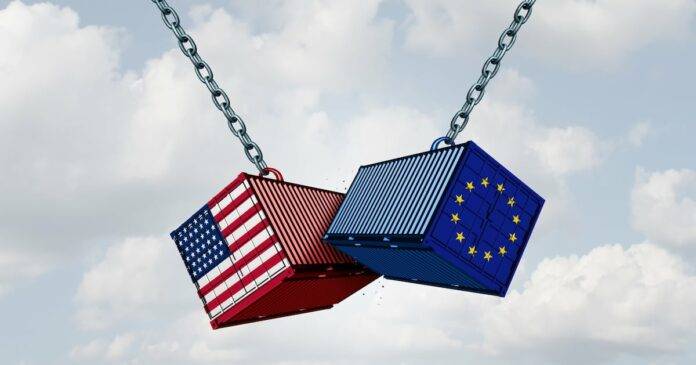Global stock markets plunged on Thursday morning as news broke that US President Donald Trump had imposed tariffs on imports. This move affected over 180 countries and territories, with China facing a 54% tariff, the European Union at 20%, and the UK at 10%. The impact of these tariffs on the food and beverage industry is significant, with key exports like wine, beer, cheese, chocolate, and coffee all feeling the strain.
The food and beverage industry quickly responded to the tariffs, expressing deep regret over the decision. Industry experts predict price hikes, production slowdowns, and tough strategic decisions ahead. As governments discuss retaliatory tariffs, manufacturers are advised to navigate these changes effectively.
The announcement of these tariffs sent shockwaves through the industry, prompting concerns about long-term impacts. Manufacturers are urged to make strategic decisions now to adapt to the changes. Whether absorbing costs, passing them on to consumers, or adjusting supply chains, businesses must act decisively. Premium brands may mitigate price rises, but cost control is essential for low-margin businesses in the coming months.
Some speculate that Trump’s tariffs aim to incentivize companies to relocate operations to the US. Major manufacturers with the means to do so may benefit from investing in the US market. However, uncertainties surrounding the administration’s policies make long-term investments challenging. Partial setups in the US could help balance costs and production specialization, while tools like transfer pricing and tariff engineering may aid in navigating the system.
Investing in alternative markets and exploring global trade agreements are options for governments and manufacturers to consider. This would challenge the US economy and contradict the intentions behind the tariffs. Uncertainties loom regarding the duration of the tariffs, their impact on global economies, and food security. Businesses are advised to prepare for increased costs, supply chain shifts, and the potential for a global recession.
In times of volatility, quick adaptation is essential to secure the future. While the outcome of this strategy remains uncertain, businesses must be prepared for potential winners and losers. The food and beverage industry faces challenges ahead, but with strategic planning and adaptability, companies can navigate the changing landscape successfully.




